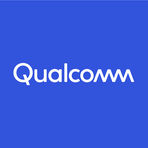Qualcomm Faces Arm's License Revocation: A Battle for the Future of Chip Technology
October 24, 2024, 4:45 am
The tech world is buzzing with news of a brewing storm between Qualcomm and Arm. The stakes are high, and the implications could ripple through the industry. Arm has issued a 60-day notice to revoke Qualcomm's license to use its architecture for chip development. This move is not just a contractual dispute; it’s a clash of titans that could reshape the landscape of mobile and computing technology.
Qualcomm, a giant in the semiconductor industry, relies heavily on Arm's architecture. Its Snapdragon processors power a vast majority of Android devices. The revocation of this license could halt the production of these chips, sending shockwaves through the supply chain. Imagine a ship without a rudder, adrift in turbulent waters. That’s Qualcomm without its license.
The roots of this conflict stretch back to 2022 when Arm filed a lawsuit against Qualcomm. The crux of the issue lies in Qualcomm's acquisition of Nuvia, a chip startup that was once a licensee of Arm. Arm claims that Qualcomm violated its contract by using Nuvia's designs without renegotiating the terms. This is akin to borrowing a neighbor's lawnmower and returning it with a broken blade. Trust erodes, and relationships sour.
Arm's allegations are serious. They accuse Qualcomm of infringing on its intellectual property and brand rights. The lawsuit paints a picture of a partnership turned adversarial. Once allies, they now stand on opposite sides of a courtroom. The tension is palpable, and the stakes are monumental.
Qualcomm's response is defiant. A spokesperson has suggested that Arm's actions are a strategic maneuver to gain leverage ahead of the upcoming trial. The timing of the license revocation coincides with Qualcomm's Snapdragon Summit, where it unveiled its latest Snapdragon 8 Elite chip. This is no coincidence. It’s a chess game, and every move counts.
The implications of this license revocation extend beyond Qualcomm. If the revocation goes through, it could cripple the production of devices equipped with Snapdragon chips. Think of it as a dam bursting. The flood of devices—laptops, tablets, smartphones—could be left high and dry. Manufacturers relying on Qualcomm’s chips would face significant delays, potentially leading to a shortage of products in the market.
The legal battle is set to unfold in December, and both companies are gearing up for a fierce showdown. Qualcomm believes it has a strong case and is confident of victory. However, the outcome remains uncertain. The courtroom is a battlefield, and the verdict could change the course of both companies.
Arm's strategy appears to be a calculated risk. By threatening to revoke the license, it aims to force Qualcomm into a corner. This could lead to a settlement before the trial, allowing both parties to save face. However, if Qualcomm stands its ground, the battle could escalate, leading to a protracted legal war.
The broader implications of this conflict are significant. Qualcomm has been shifting its focus towards developing its own chip designs, potentially reducing its reliance on Arm. This pivot could alter the dynamics of the semiconductor industry. If Qualcomm succeeds in breaking free from Arm’s grasp, it could inspire other companies to follow suit. The landscape of chip development could shift dramatically, leading to a more fragmented market.
Meanwhile, Arm is not without its challenges. Under the leadership of CEO Rene Haas, the company is pushing for more comprehensive projects that can be directly handed to manufacturers. This shift indicates a desire for greater control and profitability. However, it also raises questions about the future of its relationships with companies like Qualcomm.
The tech industry is a delicate ecosystem. Companies rely on each other for innovation and growth. The Qualcomm-Arm saga is a reminder of how quickly alliances can turn into rivalries. It highlights the fragility of partnerships in a competitive landscape.
As the clock ticks down on the 60-day notice, all eyes are on Qualcomm and Arm. Will they find common ground, or will this conflict escalate into a full-blown war? The outcome will not only affect the two companies but could also reshape the future of technology.
In the end, this battle is about more than just contracts and licenses. It’s about the future of chip technology, the devices we use every day, and the companies that drive innovation. The tech world is watching closely, and the next move could change everything.
Qualcomm, a giant in the semiconductor industry, relies heavily on Arm's architecture. Its Snapdragon processors power a vast majority of Android devices. The revocation of this license could halt the production of these chips, sending shockwaves through the supply chain. Imagine a ship without a rudder, adrift in turbulent waters. That’s Qualcomm without its license.
The roots of this conflict stretch back to 2022 when Arm filed a lawsuit against Qualcomm. The crux of the issue lies in Qualcomm's acquisition of Nuvia, a chip startup that was once a licensee of Arm. Arm claims that Qualcomm violated its contract by using Nuvia's designs without renegotiating the terms. This is akin to borrowing a neighbor's lawnmower and returning it with a broken blade. Trust erodes, and relationships sour.
Arm's allegations are serious. They accuse Qualcomm of infringing on its intellectual property and brand rights. The lawsuit paints a picture of a partnership turned adversarial. Once allies, they now stand on opposite sides of a courtroom. The tension is palpable, and the stakes are monumental.
Qualcomm's response is defiant. A spokesperson has suggested that Arm's actions are a strategic maneuver to gain leverage ahead of the upcoming trial. The timing of the license revocation coincides with Qualcomm's Snapdragon Summit, where it unveiled its latest Snapdragon 8 Elite chip. This is no coincidence. It’s a chess game, and every move counts.
The implications of this license revocation extend beyond Qualcomm. If the revocation goes through, it could cripple the production of devices equipped with Snapdragon chips. Think of it as a dam bursting. The flood of devices—laptops, tablets, smartphones—could be left high and dry. Manufacturers relying on Qualcomm’s chips would face significant delays, potentially leading to a shortage of products in the market.
The legal battle is set to unfold in December, and both companies are gearing up for a fierce showdown. Qualcomm believes it has a strong case and is confident of victory. However, the outcome remains uncertain. The courtroom is a battlefield, and the verdict could change the course of both companies.
Arm's strategy appears to be a calculated risk. By threatening to revoke the license, it aims to force Qualcomm into a corner. This could lead to a settlement before the trial, allowing both parties to save face. However, if Qualcomm stands its ground, the battle could escalate, leading to a protracted legal war.
The broader implications of this conflict are significant. Qualcomm has been shifting its focus towards developing its own chip designs, potentially reducing its reliance on Arm. This pivot could alter the dynamics of the semiconductor industry. If Qualcomm succeeds in breaking free from Arm’s grasp, it could inspire other companies to follow suit. The landscape of chip development could shift dramatically, leading to a more fragmented market.
Meanwhile, Arm is not without its challenges. Under the leadership of CEO Rene Haas, the company is pushing for more comprehensive projects that can be directly handed to manufacturers. This shift indicates a desire for greater control and profitability. However, it also raises questions about the future of its relationships with companies like Qualcomm.
The tech industry is a delicate ecosystem. Companies rely on each other for innovation and growth. The Qualcomm-Arm saga is a reminder of how quickly alliances can turn into rivalries. It highlights the fragility of partnerships in a competitive landscape.
As the clock ticks down on the 60-day notice, all eyes are on Qualcomm and Arm. Will they find common ground, or will this conflict escalate into a full-blown war? The outcome will not only affect the two companies but could also reshape the future of technology.
In the end, this battle is about more than just contracts and licenses. It’s about the future of chip technology, the devices we use every day, and the companies that drive innovation. The tech world is watching closely, and the next move could change everything.


